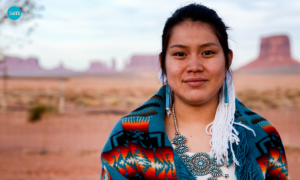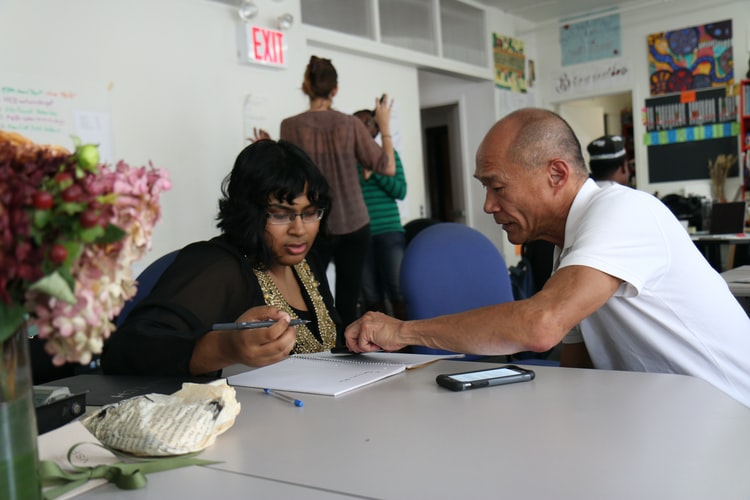Scholarships for Native American/American Indian Women

Last Updated on January 16, 2024 by Lori Pace
Lately, being a woman in an underrepresented group can have certain benefits – such as scholarships designed specifically for native American women and other minority groups. This sentiment does not necessarily make up for the transgressions of the past, but it sure gives hope for the future.
However, it doesn’t matter where you’re from or who you are. Women everywhere – moms, single moms, younger ladies, older women, undergrads, post-grads – often struggle to find enough time and money for themselves. Looking for scholarships can be frustrating and time-consuming.
What’s more, it’s not like you’re going to participate in your version of Varsity Blues, where someone else bankrolls your education. However, fear not, there are options.
We’ve gone ahead and did some of the soul-crushing research for you.
So, let’s get right to it.
Scholarship for Native American Women
Scholarships for Native American women are often available if they can prove they are at least 1/4 Native American or Alaska Native. This means that these scholarships go specifically to this minority group and helps you get the qualification you need.
1. How do I qualify for a Native American scholarship?
Many Native American scholarships require that you establish your ancestry, but it usually depends on the scholarship itself. The most common scholarships require you to be part of a federally recognized tribe. A Certificate of Degree of Indian Blood (CIDB) is proof of tribe membership.
2. How do I get a CIBD or prove I’m Native American?
You can trace your genealogy through bia.gov, where they have a downloadable guide to trace your American Indian ancestry. If you can prove your ancestry, you can apply for a CIBD (Certificate of Degree of Indian Blood) card.
What we know
- Education costs continue to rise
- Access to tuition, especially for Native Americans, has been tricky
- Only 17% of Native American students enroll in college (the national average is about 70%), and this has mainly been due to the lack of resources
- Single mothers are often cash-strapped and time-bankrupt
That said, there is hope.
Where to start
To apply for ANY scholarship, you will need the following three things:
- Digital transcript (from your last place of education)
- Tribal affiliation, or proof of Tribal Enrollment
- A professional picture of yourself
If you are a member of a Federally recognized tribe and can demonstrate (with documentation) that you are at least ¼ American Indian, you can apply for scholarship programs. Despite the negativity and inequality in the past, many organizations offer scholarships and make it easier to access them.
Having scoured the internet, we’ve come up with this to help you take the following steps towards getting a scholarship and receiving the education and additional job opportunities and security that will benefit not only you but your children.
Scholarships for Native American Single Moms
As you will read in the Scholarships for Single Moms article, there are two types of grants:
- College Scholarships
- Nursing Scholarships
At a high level, what you will need to identify, before exploring all your options, is:
- The eligibility requirements – avoid time-wasting!
- The deadline – make sure to get in ahead of this and increase your chances.
- Keep searching, keep searching – the right one is out there for you.
Who’s on our side?
We’ve not reinvented the wheel here, there are plenty of organizations who are already doing the work, and we’re introducing them to them here.
Accredited Schools Online
This ACS website has a massive amount of clear and well laid out information on:
- Determining your status as a Native American
- Completing the FAFSA
- Native American Scholarships
And so much more.
As per the site, this guide provides an overview of the scholarships, grants, and potential help available through tribal colleges for Native American students.’
Collegefund.org
By their admission, they’re on our sides! And, again, in their own words, they provide financial support for Native Americans – it looks like we’ve got ourselves a winner here. Visiting their site will immediately direct you to a form you will need to complete, and the 2021/2022 applications are open!
The form itself is pretty simple, and you can fill it in online.
However; there are three questions that you may want to complete before starting your application, and these questions are:
- What challenges have you overcome to attend college?
- What are your educational and career goals, and how will this scholarship help you achieve them?
- How will completing your education impact the Native American community
Each answer has a 300-word limit, so you can copy and paste it into the appropriate place. Your application will remain pending until July when the applications receive feedback.
Of course, there are many other ways to contact them – after all, here we all are, online and in real-time!
This Youtube video walks you through the application process, shows you what you need to get started, and helps you complete your application smoothly.
Scholarships.com
On the home page of their site, they state:
Free college scholarship search – find FREE money for College. Search over 3.7 million college scholarships and grants. About $19 billion in financial aid to help you pay for college.
Sounds promising, right?
This platform lists many available sponsorship opportunities and lists them in alphabetical order, application deadlines, and the subsidy amount.
Sponsorship amounts vary from $4 000 to more than $40 000, and programs include Law, Education, Business, Public Administration, and much more.
Click here for full details.
Scholarships for Native American women
Now, this site piqued our interest. I mean, the website’s sub-heading is ‘Native American Women Scholarships’ – again, right up our alley.
Listed below are six different groups that offer scholarships to American Indian Women. They break up the various scholarship options into:
- Non-Profit Groups
- Government
They make it clear that depending on your location, the value of Government grants may vary. This scholarships also suggest that you start with local opportunities and then look more broadly.
- Local Indian Tribes
This avenue often offers some of the best opportunities and grants, and they list programs to get you started.
- State and Federal governments
This avenue is open once you’ve approached your local government and Indian Tribes scholarship opportunities (as listed above and in more detail below), and there are three listed routes to follow.
- Corporations
It’s well known that many larger companies have foundations to assist their communities, which often includes sponsorship opportunities. Of the US, the largest corporations are listed here with the criteria they look for anyone to be eligible – helpful all around.
- College or University
There are often programs available at your local college or university, funded explicitly by local companies and organizations that you may not be aware of. These organizations include Tribal and non-tribal schools. At a tribal school, you will, of course, not have the additional pressure of competing with other minority groups.
To visit their website, click here.
College Scholarships
They come right out and say this “Native Americans have a long history of being under-represented.” So we’re on the right track here.
This site offers you:
- How you can document your ancestry (should you need to)
- Information on Grants
- Details on avenues to follow to get said grants
It’s an old website, but the information seems solid!
Our Final Message About Scholarships for Native American Women
In conclusion, there are options, and all is not lost. Many Native American women can continue their studies due to these scholarships, housing grants and other resources. If you need them, do your research and take the time that something as important as this requires. Miracles and great blessings often only happen when we search and work hard for them.
We hope this article will help you find your way to the perfect degree and create a sustainable future for you and your family.






